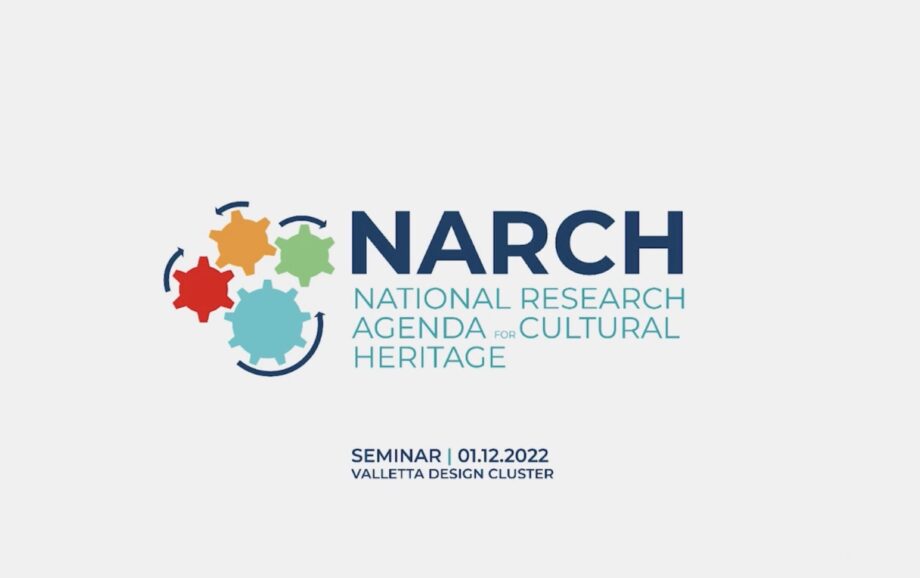December 1st 2022 saw the launch on a nation-wide platform of Malta’s National Research Agenda for Cultural Heritage (NARCH). This initiative is being led by the Superintendence of Cultural Heritage, together with the Ministry for the National Heritage, the Arts and Local Government (MHAL), and works in parallel with E-RIHS which is being spearheaded by the same Ministry and the University of Malta; the research goals of both initiatives work in parallel and involve the same stakeholders.
Over the preceding months, a targeted focus centering around networking and the establishment of national research priorities was created. The exercise started with a survey and a questionnaire sent to 200 academics and professionals within the university and national and other heritage entities, which see research as one of their core functions; responses received were over 100. The seminar held on the 1st of December saw the participation of more than 80 researchers from all local heritage entities; here the findings from this comprehensive survey were presented. The multidisciplinary audience was addressed by the Hon. Minister for National Heritage and the Permanent Secretary of the same Ministry (MHAL), the Superintendent of Cultural Heritage, the E-RIHS National Node coordinator and the NARCH coordinator.
The day-long seminar also included two workshop sessions, six of which were specialization focus groups (archaeology, art history, built/urban heritage and restoration, archives/history/ancient languages, anthropology/cultural heritage management, objects restoration/heritage sciences), and another six with interdisciplinary participants. After each workshop session, rapporteurs shared the outcomes from their groups with the wider audience. Attendees also had the opportunity to meet and network during breaks and expressed great satisfaction at having this occasion to do so; more of these events were requested to stimulate the exchange of ideas and to promote cross-fertilization of research topics. The Superintendence of Cultural Heritage will develop this project further in the coming years and is already planning a follow-up with the stakeholders.

